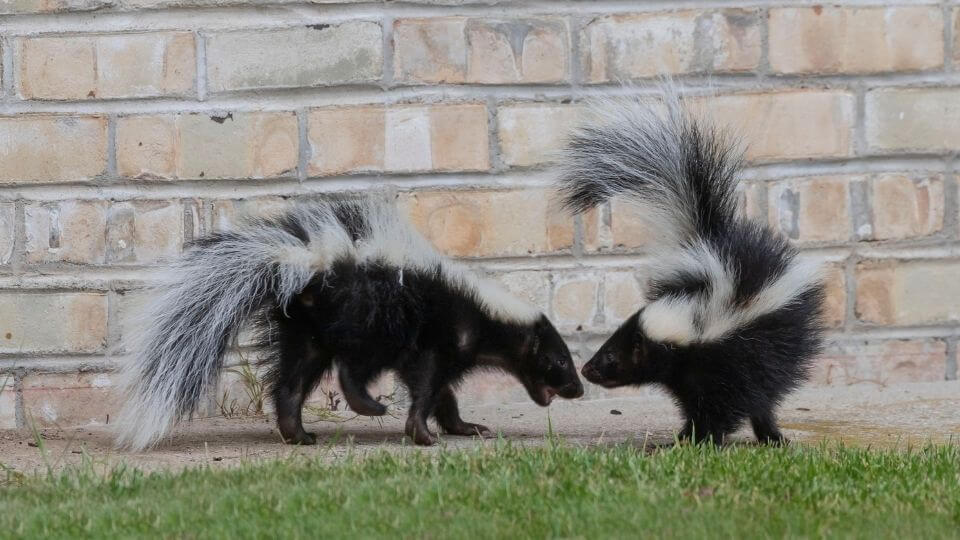While they're primarily quiet, skunks can vocalize in a wide range of ways, including hisses, growls, grumbles, snuffles, and grunts. These sounds are often used to intimidate predators or show displeasure. Skunks will also stomp their front feet and stamp their tails to ward off potential threats.
Skunks are fascinating creatures that are known for their distinctive smell. But did you know that skunks also make a variety of sounds?
If you ever find yourself near a skunk, it’s best to give it some space and not make sudden movements. Skunks are generally not aggressive animals, but they will defend themselves if they feel threatened.
Let’s all dive right in and find out some more about skunk behavior and the variety of skunk sounds these creatures can produce!
Table of Contents
What kind of sound does a skunk make?
Skunks can produce a whole range of sounds depending on age, mood, and activity.
Skunks have excellent hearing and smell, but their eyesight is poor. As such, skunks often use their noses while foraging for food.
Take, for instance, their hunting activities. During this time, they make audible snuffling sounds that can be heard a few feet away.
However, if a skunk feels threatened, it will hiss, growl, or grunt as a way to warn off potential predators.
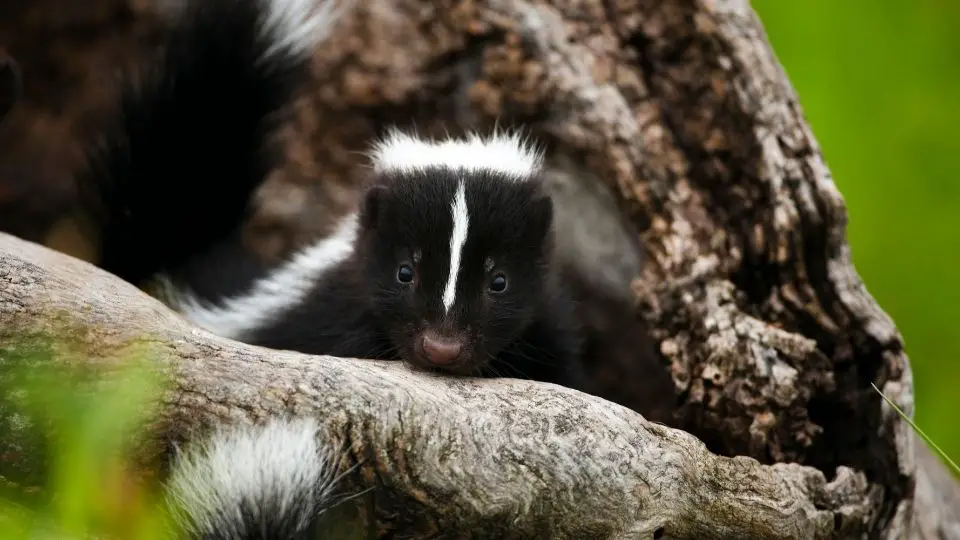
They typically don’t resort to vocalization right away; instead, they stomp their feet and stamp their tails when they’re starting to feel uncomfortable. If none of these measures work, they’ll not resist the temptation to spray their attacker with their signature stench.
Skunks also vocalize more frequently when it’s mating season, specifically the period between February to April. During this time, male skunks may create a wide range of sounds, including chirps, barks, clicks, and screeches, to attract potential mates.
A juvenile or baby skunk is also more prone to making distinct vocalizations than their adult counterparts. These younger skunks make cooing and chirping sounds when they’re happy or content.
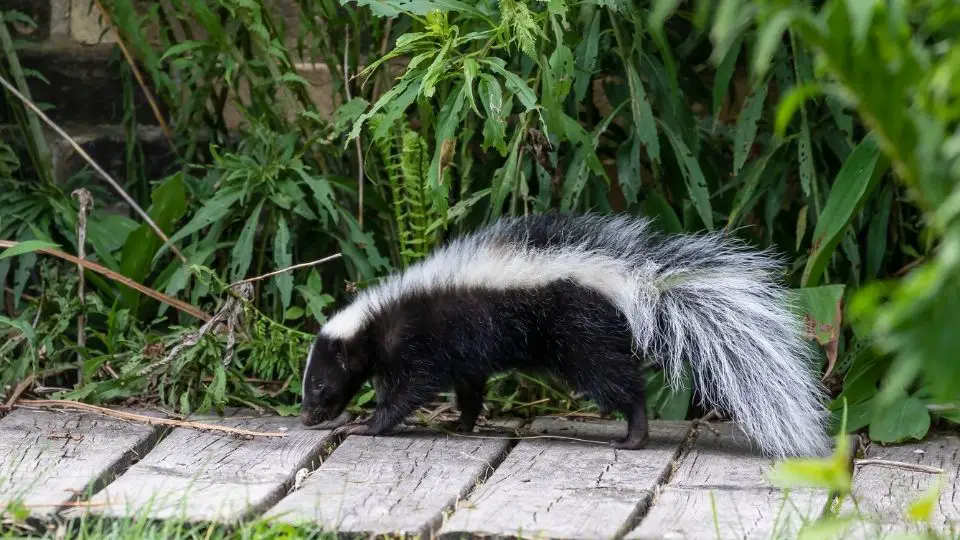
Do skunks make noises at night?
Skunks are nocturnal animals, so they’re more likely to do their foraging, hunting, and mating activities at night. As such, you’re more likely to hear skunks vocalizing during the nighttime hours.
You can expect to hear noises from skunks at night include snuffling, growling, and grunting. If you hear strange noises on your property at night, there’s a big chance it could be a skunk roaming around your place.
Do skunks squeak?
Like raccoons and opossums, skunks can make squeaking noises, albeit very rarely. This usually happens when they’re angry and are trying to keep predators like coyotes away.
What to do once you identify skunks nearby?
In North America, four species of skunks are commonly found:
- The striped skunk (Mephitis mephitis)
- The hog-nosed skunk (Conepatus leuconotus)
- The spotted skunk (Spilogale putorius)
- The hooded skunk (Mephitis macroura)
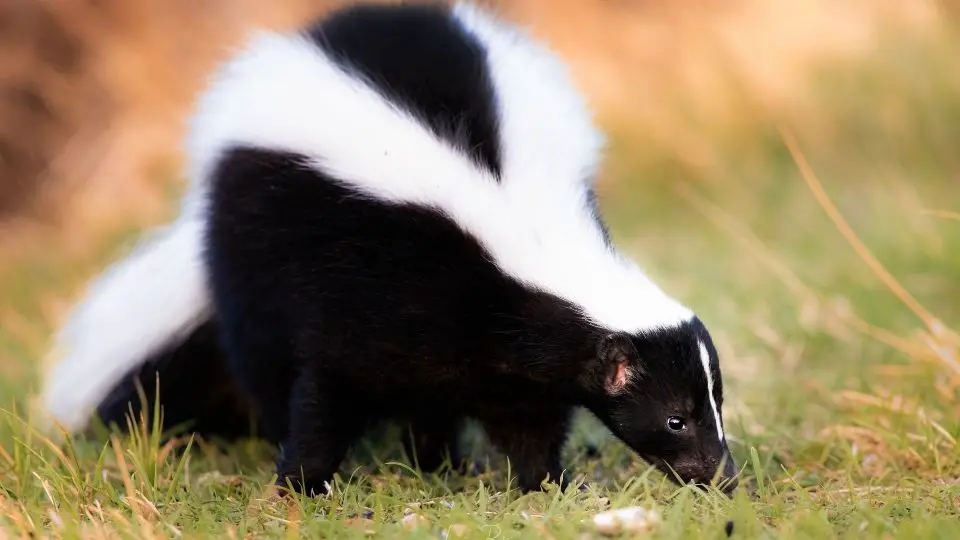

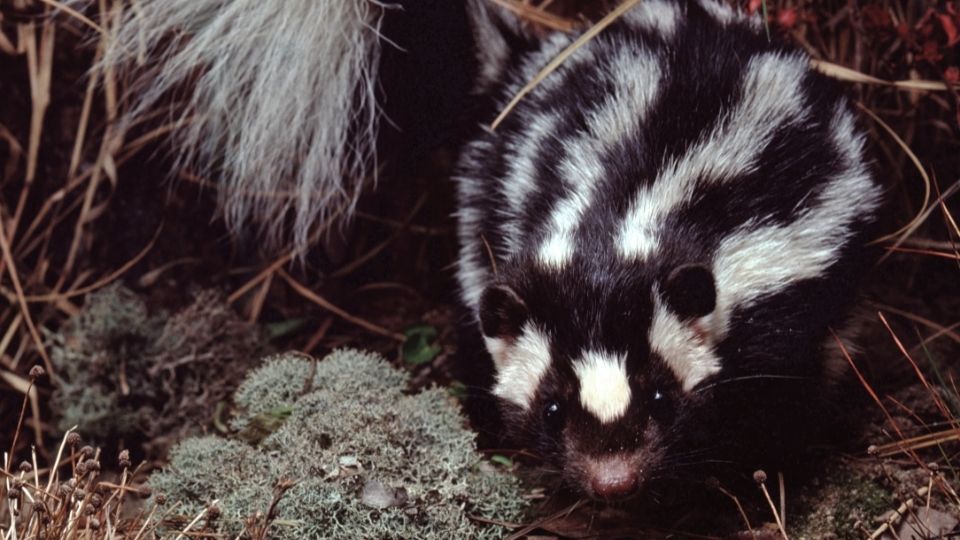
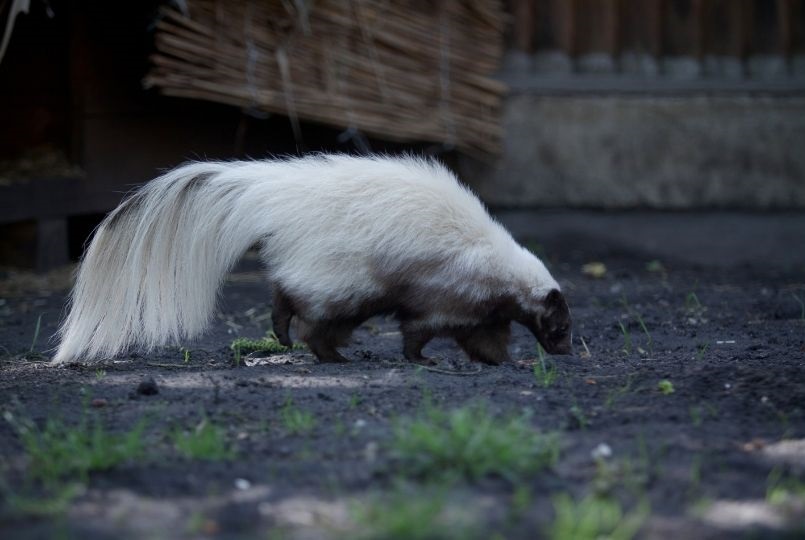
They all have black and white stripes, a long, bushy tail, and the ability to release a potent stench from their anal glands. As such, you wouldn’t want these animals taking up residence in or near your home.
If you think you have skunks living under your porch or in your garbage cans, here are some strategies you can do to get rid of them:
Food
Remove potential food sources like pet food, garbage, and fallen fruit from your property. This is to dissuade them from hanging around your place.
Fencing
Install a fence around your property. Ensure the fence is at minimum 4 feet high and 1 foot deep to prevent burrowing skunks from entering.
Traps
Set up live traps with smelly foods like fish or sardines. Once you catch a skunk, release it far away from your home.
Repellent
Use a repellent. You can either use a commercial grade repellent or make your own using homemade ingredients.
Relocate captured skunks. But be sure to check your state’s wildlife regulations first before doing so, as it can be illegal in some states.
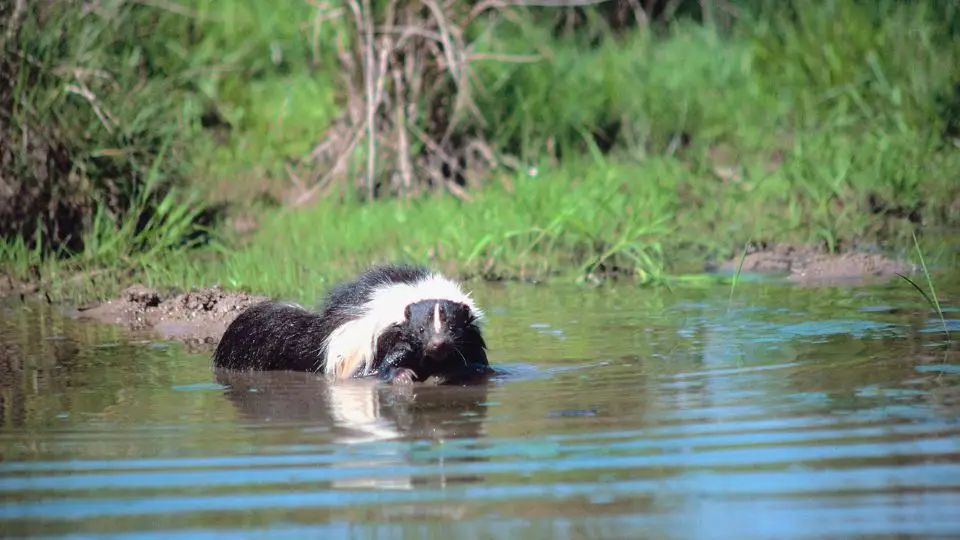
If you absolutely don’t want to risk getting hit by the lingering skunk smell from a skunk spray, it’s best to call a professional wildlife control operator to take care of the problem.
They’re equipped with the proper tools and know-how to remove skunks from your property safely.

